Story behind Coco Melon and why it's so addicted
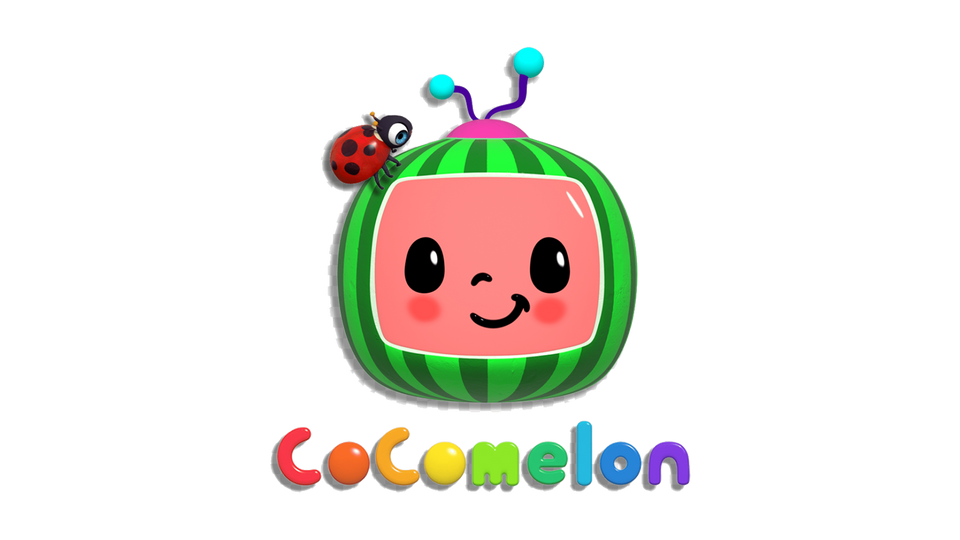
Coco melon got even more popular/addicted via the pandemic
If you ever grow a toddler, it's hard to miss the videos from Coco Melon. Coco Melon is world #2 most subscribed channel on Youtube, and famous for nursery songs and high contrast colorful characters with main character JJ.
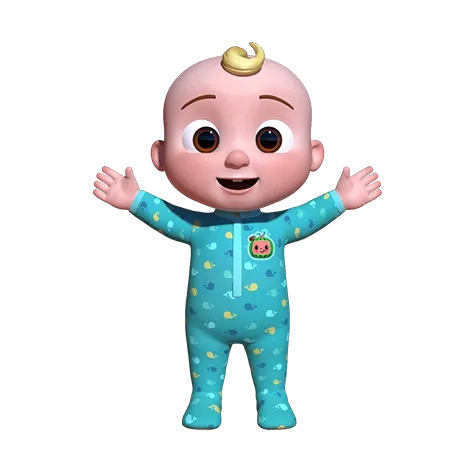
At least for me, especially during the pandemic lockdown period, my kid (at the time, 3 year-old) was literally addicted to that channel, not only on youtube, as well as on Netflix. So what's the exactly story behind coco melon, and who's owning it and still actively driving it?
What's behind coco melon?
Coco melon was created as an indie project back to 2005 by Jay Jeon, a father of two in Southern California. Jeon, who had directed some TV commercials, was trying to teach his kids the ABCs. He started working with his wife, a children’s-book author, to make videos to accompany the nursery rhymes they sang to their sons.
Later, their youtube channel got so many subscribers that they convert it into full time jobs. In 2017, they made two important moves – focusing on the main character JJ (showed above) and changing from 2D to 3D effect. Fast forward to December 2018, Coco Melon was getting 2 billion view a month.
If being successful independently, no one can avoid the radar of capitals. At the beginning of pandemic, with the initial viewing storm of staying home kids, Jay sold the brand to a media company Moonbug, which interesting enough only founded in 2018. Moonbug was good at scaling up things:
- They expanded the shows to move audience in countries like South Korea, China, and Europe.
- They kept their momentum on M&A, acquired Little Baby Bum, and then Blippi which alone 2021 revenue is $17 million. See part of their roasters:
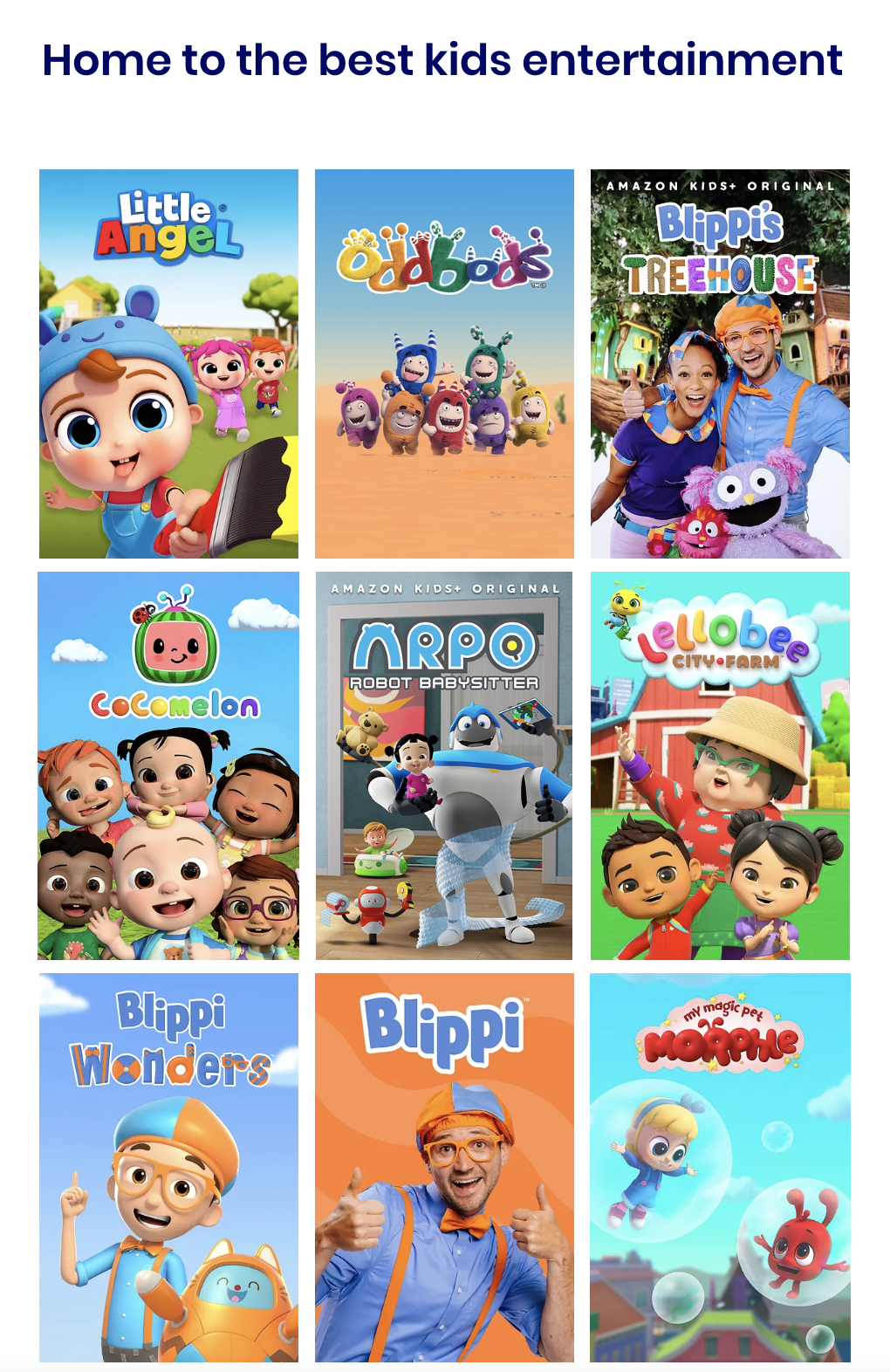
The story is not ended yet, there's more big-fish-eat-small-fish kinda of plot is happening. In November 2021, Moonbug agreed a merge with the another media company backed by Backstone, the conglomerates has over $700 billion assets under management. And the media company is controlled by two former Disney executives Kevin Mayer and Tom Staggs. Kevin Mayer sounds so familiar to me initially, after some quick research, I realized he was the guy overseeing Tiktok right around Trump drove the movement to ban the app 2 years ago.
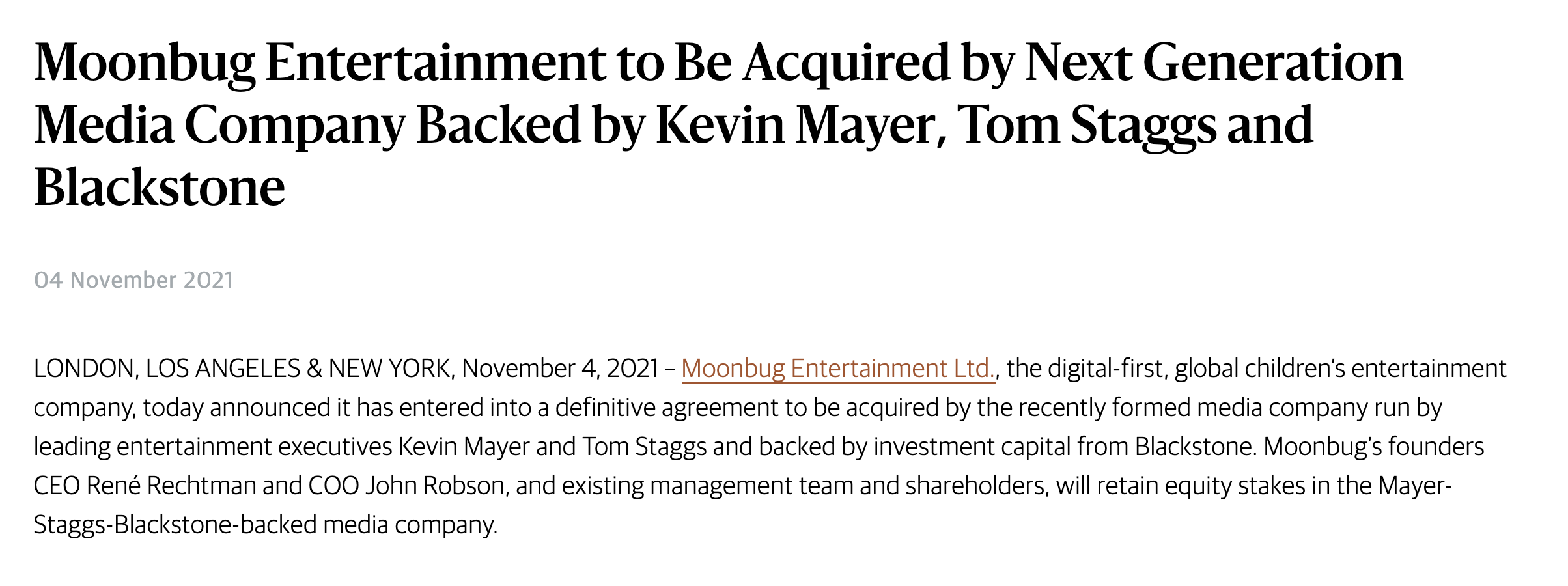
How does Coco Melon operates things days
The show is quite simple – each episode is a self-contained song that lasts two to three minutes. Some of them are familiar nursery rhymes like “Wheels on the Bus”; others are original catchy rhythem about the moments that make up a toddler’s life. The songs star JJ and his two siblings, older brother TomTom and older sister YoYo; their mom and dad; and JJ’s friends. The topics are universal: viewers see JJ perform familiar tasks, like potty training and putting on shoes, and struggle with familiar challenges, like learning to share and getting sick. The show takes “every meaningful moment” in a toddler’s life and makes a song around it.
The show takes an iterative and data-driven approach – Every Monday, CoComelon puts out a new episode on YouTube, often experimenting with new characters, music, or story lines. Within the next few days, Moonbug’s data-insights team in London has crunched the numbers to suss out what did or didn’t work. If an element resonates, the creative team will try more of it. If it doesn’t, they move on to something else. The upshot is that viewers of Moonbug’s programs on platforms like Netflix are getting content that has already proved successful with a large audience.
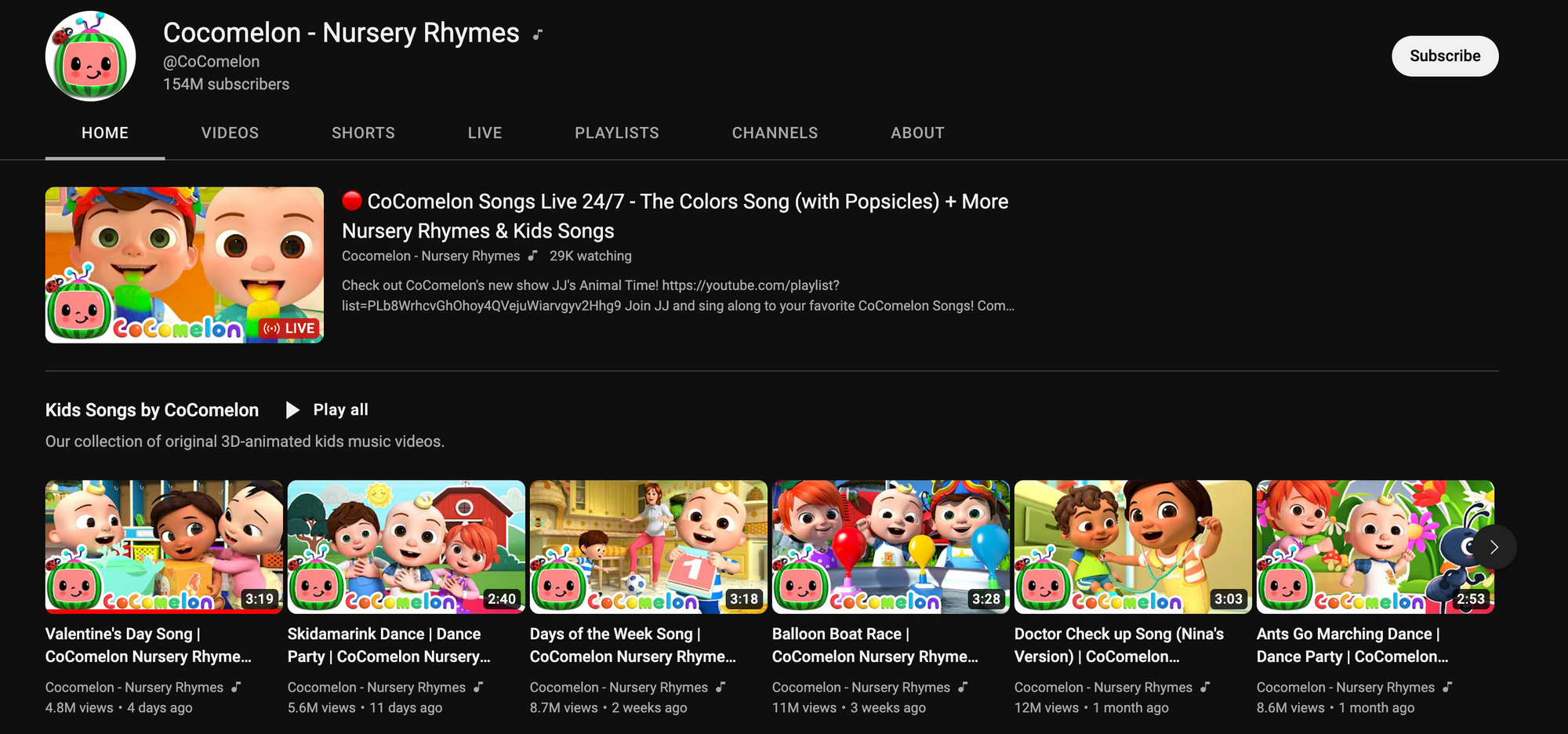
Recently, they're even rolling out more characters to highlight diversity perspective – Cody, who is Black, and there’s a Latina character named Nina Rodriguez. Also viewing data shows 56% of the audience are from African American, Hispanic, or Asian American homes.
The complaints around it
There's definitely down side of this pure data-driven approach, and the more and more pressure of pursuing profits, especially under the management of Blackstone backed media companies.
- Too much focus on click rate and watching time may lead low quality of these videos. This is just like the classical debate of short term goal chasing vs. long term goal strategic design of a public company. If everything is purely driven by markets, it loses its creativity source.
- This is also easily to have the mis-conception that only relying on metrics to show whether a children’s series is educational. A lot of times, to toddlers, these videos are not meant to educations, instead, just to make their parents, who might choose the shows on behalf of toddlers, to feel that these are educational.
- This show is highly overstimulating and is very likely to result in behavioral and attention disorders. There's a series of complaints from some educational professional about this.
- Lastly, we all know when turning it off the show in front to toddler would typically create some seriously genuine heartbreak and terror, even if parent warned it was coming, set a timer, etc.
I think overall, it's not the fault of Coco Melon alone, it's about this Internet age. All the shows are designed to be addictive.
“You’re setting up kids to start depending on screens for stimulation and soothing,” Susan Linn, the author of Consuming Kids, says. “What we really want is for kids to be able to amuse and soothe themselves.”
Any solution?
It's hard to say whether there's one single silver bullet solution about whether keep watching it or completely ban it in the house.
First of all, parents need to add more filtering about the shows, and be ware of that the show is designed to make parents think they're educational, but could not be in the first place. Besides Coco Melon, there're also tons of other good education sources, a balanced choice for kids is definitely a better way to go. At the end of the day, we need to realized these free youtube video comes with a cost, and it's produced by for-profit organization anyway. Ultimately, the show’s success gets kids attached to an entity whose primary interest is selling them stuff. After Moonbug's takeover, the show had been translated to more than 10 languages, and in addition to plush toys and sleepwear, parents can now buy CoComelon-branded booster seats, xylophones, books, snacks, and kitchens.
Secondly, setting up kids to watch TV cannot replace the quality time spent with kids, even though we all know those hard period during the stay home time at peak of the pandemic. Just like the theme revealed in the recent movie "M3GAN" where the kid got emotionally attached with the AI instead of people because the main character built a robot to accompany with her for the excuse of time. People need quality time to really build connection, even more so between kids and parents.
References
[1] https://time.com/6157797/cocomelon-success-children-entertainment/
[2] https://www.blackstone.com/news/press/moonbug-entertainment-to-be-acquired-by-next-generation-media-company-backed-by-kevin-mayer-tom-staggs-and-blackstone/
[3] https://www.eviemagazine.com/post/cocainemelon-why-toddlers-can-get-addicted-to-watching-cocomelon
